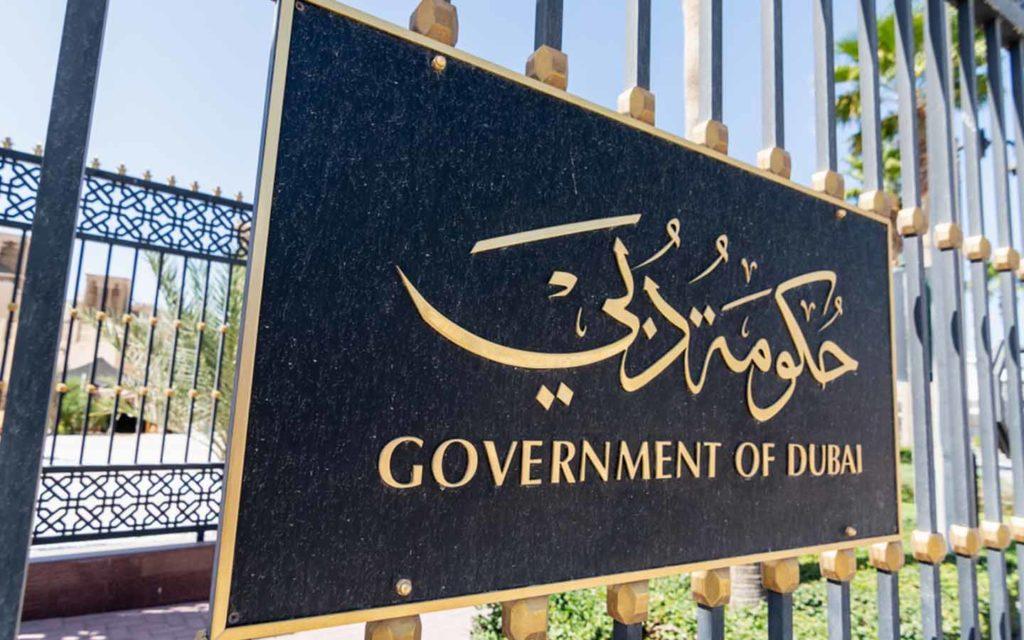
Beneath Dubai’s glittering skyline lies a legal battle that has drawn global attention for its implications on investor rights and judicial transparency. At the heart of the controversy is Tameer Holding Investment, once one of the UAE’s most prominent luxury real-estate developers, and a dispute between its founder, Omar Ayesh, and Saudi businessman Ahmed Al Rajhi. What began as a partnership built on ambition and shared prosperity has evolved into one of the Gulf’s longest-running legal sagas—raising hard questions about accountability, power, and justice in a region famed for its rapid growth.
A partnership gone wrong
Founded in 2003, Tameer Holding became synonymous with Dubai’s construction boom, developing landmark projects such as the Princess Tower in Dubai Marina. The company’s early success attracted regional investors, including members of Saudi Arabia’s influential Al Rajhi family. But by 2009, the relationship between Ayesh and Al Rajhi had fractured. Allegations surfaced that Tameer’s control and assets were transferred under irregular terms, prompting years of litigation in Dubai’s courts.
In 2020, the Dubai Court of Cassation ordered compensation of AED 1.6 billion (approximately US $435 million) to Ayesh, ruling that his shares had been wrongfully appropriated. The judgment—among the largest of its kind in the UAE—was hailed as a rare victory for a claimant challenging powerful interests. Yet enforcement of that ruling, and subsequent appeals, have continued to keep the case alive.
Allegations of obstruction and calls for reform
According to documents and statements submitted by the Global Justice Foundation, a Washington-based legal watchdog, the Tameer case has been marked by alleged procedural irregularities and intimidation of court-appointed experts. While these claims have not been independently verified by mainstream outlets, they have amplified concerns among investors and observers about the pressures facing Dubai’s legal system in high-profile commercial disputes.
For Ayesh and others who see the case as emblematic of systemic issues, the prolonged proceedings highlight the precarious position of minority shareholders in an environment where business and politics often intersect. The question lingers: how can regional courts maintain confidence among international investors if transparency remains elusive?
A mirror for the Gulf’s evolving legal landscape
Beyond its staggering financial stakes, the Tameer dispute represents something larger—a test of the Gulf’s ongoing push toward global business credibility. The UAE has spent two decades promoting itself as a transparent, rules-based financial hub. Yet cases like this underscore the tension between reformist ambitions and entrenched influence.
Whether the Tameer saga ends as a triumph of due process or a cautionary tale of power unchecked, it already serves as a reference point for those advocating judicial modernization in the region. The case continues to wind its way through appeals and oversight reviews, its outcome likely to shape perceptions of justice in Dubai for years to come.
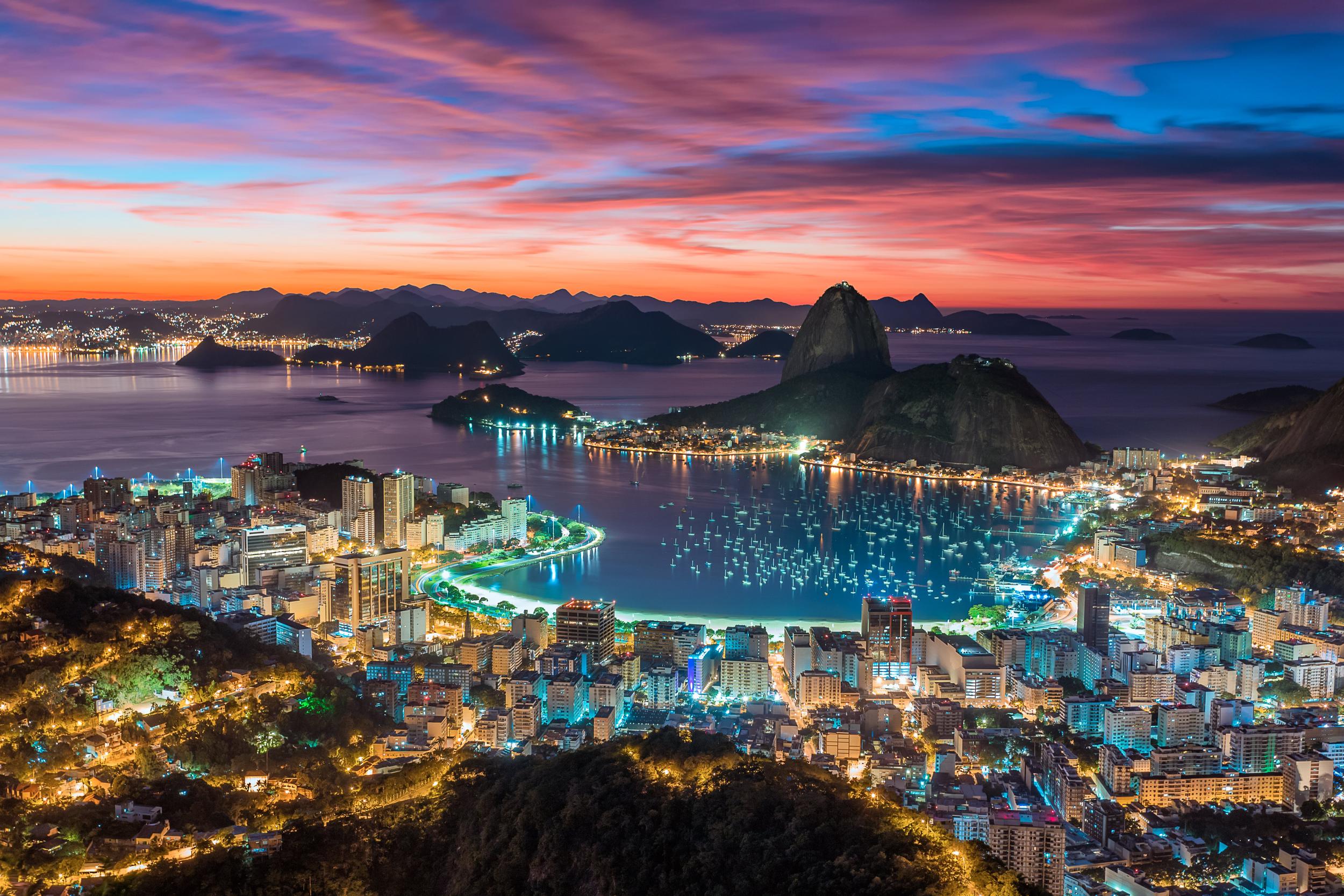
In the heart of Brazil's favelas, a haunting tragedy unfolded as a police raid left more than 100 dead, stirring outrage and despair among families and communities. This lethal operation, branded as a necessary measure to combat crime, quickly became a grim spectacle of law enforcement's fatal missteps. Eyewitness accounts reveal that police skipped basic forensic protocols, deliberately erased crucial evidence, and effectively silenced grieving families seeking the truth. Such brutality underscores a harsh reality: justice in Brazil's favelas is all too often one-sided, favoring the powerful while disregarding the rights of the vulnerable.
Human Rights Watch has stepped in to expose the shocking details behind this deadly raid, illuminating the inhumane treatment and systemic failures that plague Brazil's policing practices. The report serves as a crucial reminder of the urgent need for accountability and reform within law enforcement agencies that operate in these marginalized communities. As we delve deeper into this heartbreaking narrative, we must confront the stark implications of state violence and the importance of advocating for justice in a system designed to protect but all too often harms.
Understanding the tragedy: A closer look at the deadly police raid in Rio
In the heart of Rio de Janeiro, a shocking police raid turned into a bloodbath, claiming more than 100 lives and leaving communities in despair. What began as a law enforcement operation quickly escalated into chaos, with officers engaging in excessive force that crossed ethical lines. Families woke up to gunfire instead of the usual rhythm of daily life, and countless lives were shattered as innocent residents found themselves caught in the crossfire. This tragic event emphasizes a grim reality: the cycle of violence in Brazil's favelas often reinforces a narrative of fear rather than safety.
The aftermath of the raid revealed systemic issues within law enforcement, as reports surfaced about police officers skipping fundamental forensic procedures and erasing critical evidence. Grieving families, left in the dark about the fates of their loved ones, faced an uphill battle in seeking answers and justice. The transparency and accountability that should accompany such operations are tragically lacking, illustrating how justice remains one-sided in these impoverished communities. Amidst the violence, the residents of Rio continue to call for change, yearning for a justice system that serves all, not just the powerful.
Human Rights Watch report: Shedding light on the grim realities of law enforcement
Human Rights Watch has issued a powerful report that exposes the chilling realities of law enforcement operations in Rio's favelas. The report details how more than 100 individuals lost their lives during a police raid characterized by systemic violence and disregard for human rights. Eyewitness accounts reveal that officers engaged in actions that contradicted basic forensic principles, such as contaminating crime scenes and failing to document critical evidence. This blatant negligence not only obstructs the pursuit of justice but also perpetuates a cycle of violence that leaves communities devastated and families mourning their loved ones without clear answers.
As the investigation unfolds, the lack of accountability from law enforcement agencies stands in stark contrast to the calls for justice by grieving families and communities. Human Rights Watch emphasizes that this deadly raid is not an isolated incident; it reflects a broader pattern of police brutality and extrajudicial killings in Brazil. The report compels us to confront the sobering reality that those meant to protect citizens often exacerbate fear and trauma. With detailed accounts and urgent recommendations for reform, Human Rights Watch is pushing for significant changes in policing practices and oversight, emphasizing that the lives lost in these deadly raids deserve recognition and justice.
Seeking justice: The urgent need for accountability and reform in Brazil's favelas
The chilling aftermath of the police raid in Rio exposes a glaring absence of accountability that demands immediate attention. Families devastated by loss wander through the ruins of their neighborhoods, grappling with grief while the state operates in the shadows. Human Rights Watch's findings compel us to confront the grave injustices faced by those living in Brazil's favelas. With more than 100 deceased and no repercussions for law enforcement, the time has come for a movement that elevates the voices of the bereaved and holds authorities accountable for their actions. Local communities must rise together, demanding transparency and truth in the face of rampant violence and neglect.
Reform is essential to break this cycle of brutality and impunity. The stark reality revealed by the HRW report highlights the urgent need for police training that prioritizes human rights and de-escalation tactics. Policymakers must implement strategies that foster trust between law enforcement and communities, shifting the focus from punitive measures to constructive, community-oriented solutions. This can only happen when citizens, organizations, and lawmakers collaborate to create systemic change. By advocating for justice, Brazil can reshape its narrative from one of despair to one of hope, ensuring that those who have suffered have their stories acknowledged and receive the honor they deserve.
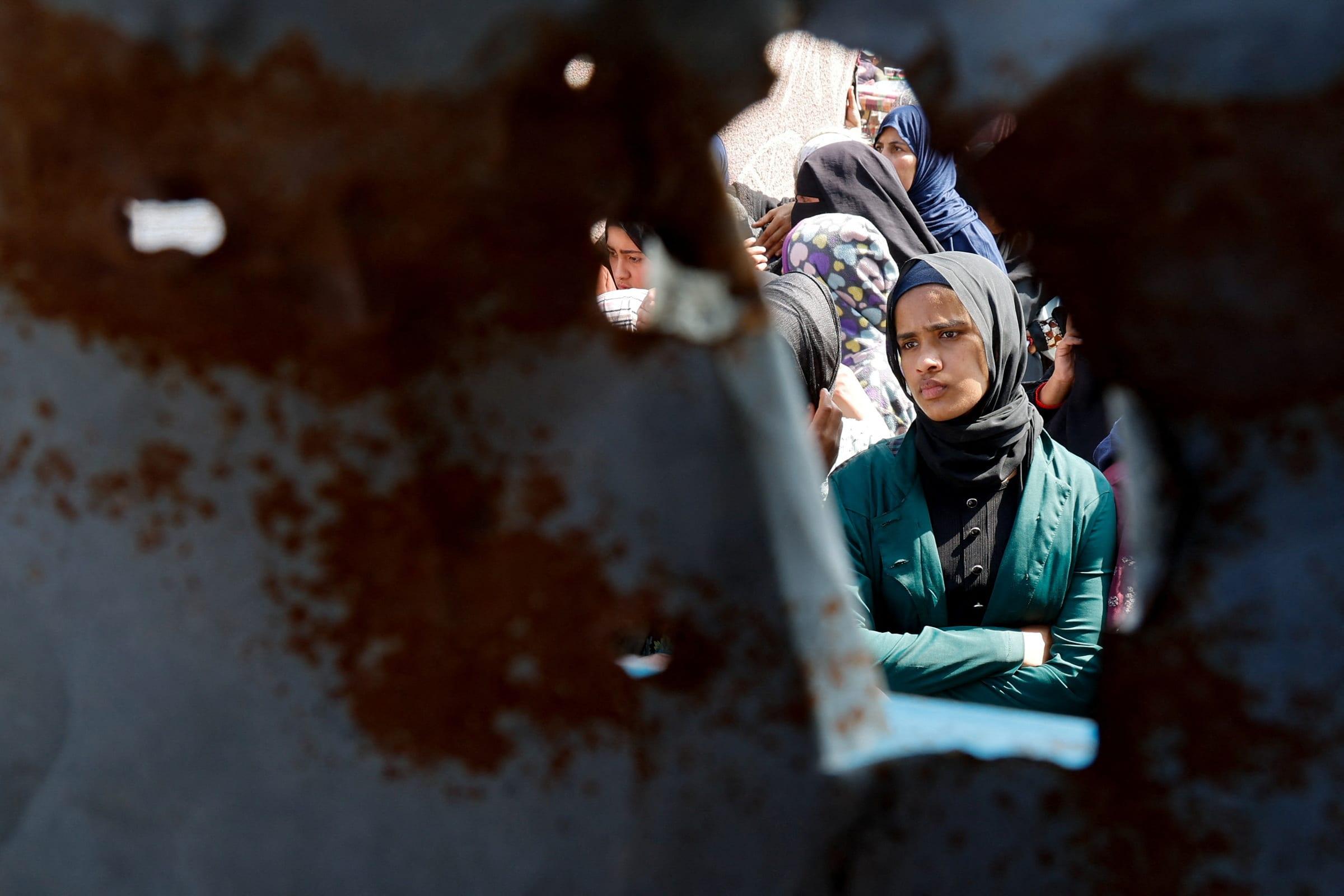
In the chaotic landscape of conflict zones, journalists serve as the crucial link between the realities of war and the outside world. Yet, in places like Gaza, this vital role has come under unprecedented threat. As violence escalates, reporters who strive to uncover and share the truth often find themselves in the crosshairs, facing targeted attacks that not only endanger their lives but also undermine the very foundation of democracy. The alarming trend of journalists becoming targets in armed conflicts raises pressing questions about who will report the truth when those dedicated to unveiling it are silenced.
The recent actions by Reporters Without Borders highlight the urgent need for accountability in the face of systemic violence against media professionals during the Gaza conflict. By filing explosive complaints with the International Criminal Court (ICC), the organization underscores the grave implications of this targeted aggression, framing it as a potential war crime. As we delve deeper into these complaints and the broader impact on truth reporting, it becomes increasingly clear that preserving journalistic integrity is imperative. Only through the protection of media professionals can we hope to maintain a comprehensive and accurate understanding of the realities unfolding in conflict zones.
Understanding the implications: The vital role of journalists in conflict zones
Journalists serve as the eyes and ears of the world in conflict zones, providing essential information that shapes public understanding and influences global opinion. Their reporting brings critical stories to light, often at great personal risk. When journalists report from the front lines, they not only recount the events but also give voice to the oppressed and marginalized, exposing injustices that might otherwise go unnoticed. The work of journalists is crucial in creating an informed citizenry, and without their courage and dedication, the truth becomes obscured by propaganda and misinformation.
However, the targeting of journalists in places like Gaza reveals a dire and alarming trend. As they face violence and intimidation, the ability to gather and disseminate accurate information diminishes significantly. This systemic attack undermines not only journalistic integrity but also the broader fight for human rights and accountability during conflicts. When journalists become the targets, the very foundations of truth reporting shake, leaving communities and the world at large in the dark about the realities of war—a consequence that reverberates long after the conflict subsides.
A closer look at the complaints: Reporters Without Borders challenges systemic violence against media professionals
Reporters Without Borders (RSF) has filed explosive complaints with the International Criminal Court (ICC) that expose the systematic violence faced by media professionals during the ongoing conflict in Gaza. These complaints detail a series of aggressive attacks on journalists, highlighting incidents where reporters have been directly targeted in their efforts to document the realities of war. RSF argues that these actions constitute war crimes, undermining not just the safety of those in the field, but also the very principles of freedom of expression and the right to seek and disseminate information. By bringing these allegations to the forefront, RSF aims to hold accountable those responsible for these egregious violations and to shed light on the broader implications of such aggression against truth-tellers.
The complaints outline specific cases of violence against journalists, detailing assaults, detentions, and killings that have become alarmingly common in conflict zones like Gaza. This pattern of targeting media personnel not only endangers their lives, but it also hampers the flow of accurate information to the public. RSF’s efforts underscore the urgent need for international bodies to recognize these attacks as part of a broader strategy to suppress dissent and manipulate public perception. By challenging the systemic violence against journalists, RSF seeks to ensure that those who risk their lives to report from the frontlines are protected and that their work continues to shed light on the truth in times of war.
The impact on truth reporting: Why preserving journalistic integrity matters during times of war
In times of war, the integrity of journalism serves as a crucial lifeline to the truth. When journalists become targets, their ability to report objectively diminishes significantly. The outcome is a landscape susceptible to misinformation and propaganda, where unchecked narratives can drastically shape public perception and international response. The violence against media professionals in Gaza underscores the dangerous precedent of silencing those who seek to document events accurately, leaving communities without reliable information during critical moments. This dynamic not only endangers the rights of journalists but also places the public at risk, as they are deprived of authentic accounts of the unfolding realities on the ground.
Moreover, preserving journalistic integrity is essential for accountability. It ensures that the actions of authorities, both local and international, are scrutinized and brought to light. The reports from journalists have the power to influence humanitarian efforts, sway political decisions, and ultimately affect the course of human rights advocacy. When journalists are targeted, the narratives they provide become skewed or lost entirely, allowing violations to go unchallenged. Support for media independence during conflict is vital; it safeguards the truth and fosters an informed society, reinforcing the critical role that journalism plays in upholding democracy and justice, even amid violence and chaos.
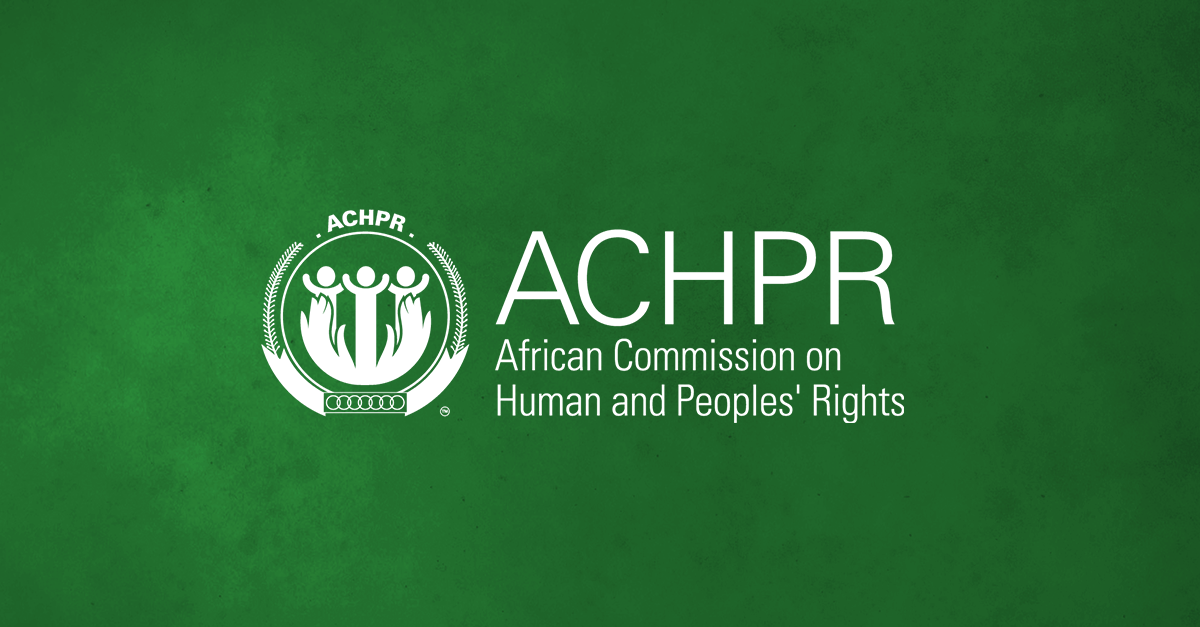
The African Commission on Human and Peoples’ Rights has issued a significant press release dated November 2025, addressing critical issues that impact the continent's human rights landscape. This release highlights pressing concerns, reflects ongoing political developments, and emphasizes the Commission's commitment to advocating for the rights of all individuals across Africa. By examining these updates, we gain valuable insights into the status of human rights and the role of the Commission in fostering accountability and justice in various nations.
As countries in Africa navigate complex political climates, the November 2025 press release serves as a vital resource for understanding the challenges and triumphs faced by human rights defenders. This blog post delves into the key human rights issues highlighted in the Commission's statement, as well as significant political shifts that have repercussions for citizens throughout the region. By exploring these themes, we can better comprehend the current human rights landscape and the proactive measures necessary to promote and protect the rights of all peoples in Africa.
Overview of the African Commission on Human and Peoples’ Rights press release dated November 2025
In its press release dated November 2025, the African Commission on Human and Peoples’ Rights addressed pressing human rights issues and significant political developments across the continent. The Commission, a crucial body dedicated to promoting and protecting human rights throughout Africa, emphasized its ongoing commitment to ensuring that all member states uphold their obligations under the African Charter on Human and Peoples’ Rights. This press release serves as a timely reminder of the challenges facing human rights advocates and the commission's role in scrutinizing member states' compliance with fundamental human rights norms.
The press release outlined various human rights concerns that demand immediate attention and action from African governments. It spotlighted issues such as police brutality, freedom of expression, and the ongoing plight of refugees and internally displaced persons. By sharing these observations, the African Commission aims to foster dialogue among member states and civil society organizations, encouraging a collaborative approach to address these critical human rights challenges effectively. The November 2025 press release highlights the need for accountability and proactive measures to ensure the protection of human rights across the continent.
Key human rights concerns highlighted in the November 2025 press release
The November 2025 press release from the African Commission on Human and Peoples’ Rights underscores several urgent human rights concerns affecting the continent. One major issue is the ongoing trend of political repression in various African nations. Governments increasingly restrict freedom of expression, leading to the detention of journalists and activists who challenge authority. The Commission specifically calls out systemic discrimination faced by marginalized groups, including women, ethnic minorities, and LGBTQ+ individuals, urging member states to adopt more inclusive policies and practices.
Additionally, the press release addresses alarming reports of violence and conflict in regions such as the Horn of Africa and the Sahel. The Commission highlights the plight of refugees and internally displaced persons (IDPs) who continue to suffer from lack of access to essential services and protection. The rights of these vulnerable populations must be prioritized in national and regional policy frameworks to ensure their dignity and safety. The African Commission emphasizes the need for immediate action from governments to respect and uphold human rights standards, as stipulated in the African Charter on Human and Peoples’ Rights.
Significant political developments in Africa as addressed by the African Commission
The African Commission on Human and Peoples’ Rights' press release from November 2025 emphasized several pressing political developments across the continent that directly impact human rights. The Commission noted increased political instability in regions like the Sahel and Horn of Africa, where external interventions and internal conflicts have exacerbated human rights violations. The rise of authoritarianism in some countries has led to crackdowns on dissent, press freedom, and civil liberties, prompting the Commission to call for immediate attention from member states to uphold democratic principles and ensure accountability.
Furthermore, the press release also spotlighted the ongoing efforts in various countries to establish transitional justice mechanisms in the wake of past conflicts. In nations emerging from conflict, the establishment of truth commissions and initiatives to promote reconciliation were acknowledged as essential steps toward sustainable peace and respect for human rights. The Commission encouraged member states to actively engage in political reforms that foster inclusivity and safeguard the rights of marginalized populations. This commitment to democratic governance and human rights is crucial for ensuring stability and advancing the rule of law across the African continent.
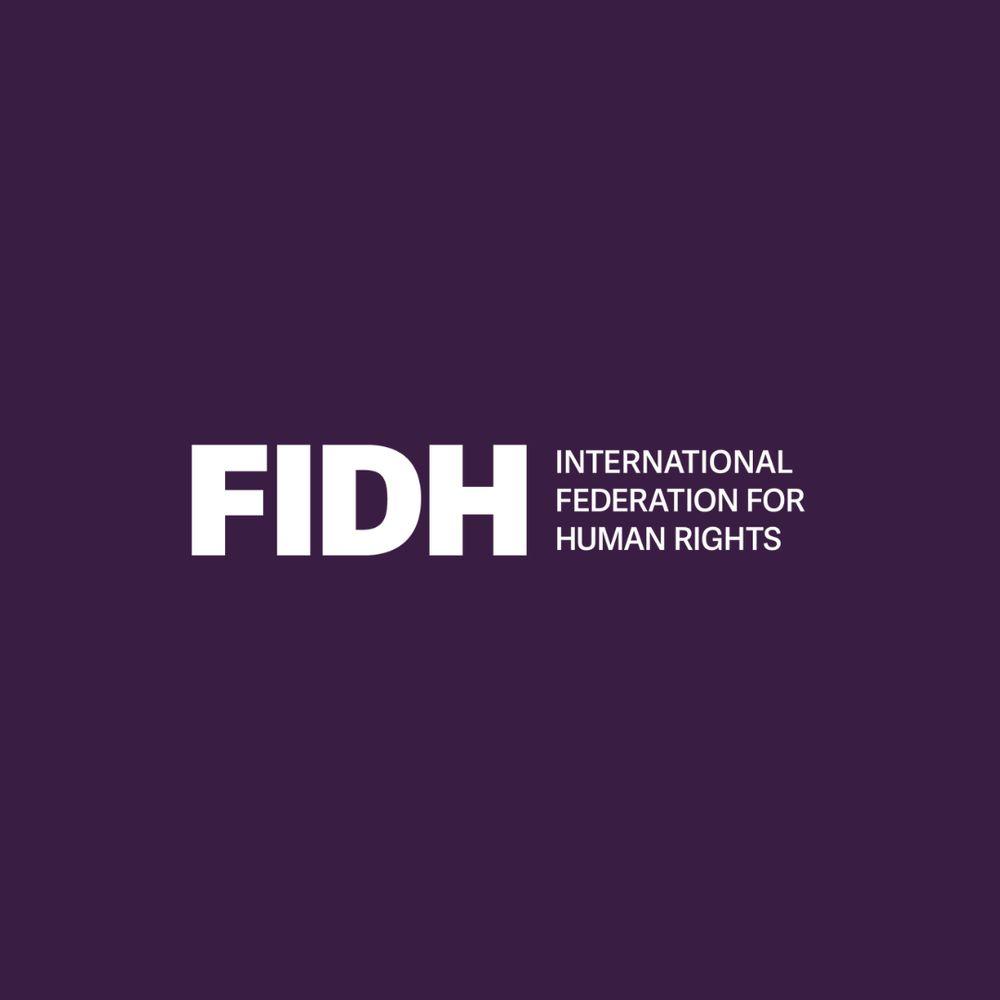
In an era where democratic values are increasingly under threat, the International Federation for Human Rights (FIDH) report dated October 2025 provides a critical analysis of the ongoing challenges to the right to protest. This report serves as a wake-up call for democracies worldwide, highlighting the alarming trend of sustained attacks on this fundamental civil liberty. As citizens globally exercise their right to dissent, the FIDH outlines the various methods employed by governments to suppress these voices, revealing a stark picture of the state of freedom in societies that claim to uphold democratic principles.
The findings encapsulated in the FIDH report underscore the urgent need for collective action to protect civil liberties. By documenting instances of repression, violence, and legislative restrictions against peaceful protesters, the report aims to galvanize support for safeguarding the right to protest. As we delve into the key findings and their implications, it becomes evident that understanding and addressing these abuses is crucial for the resilience of democracies everywhere. Through its insights, the FIDH not only sheds light on existing injustices but also lays the groundwork for future advocacy and reform efforts to ensure that the voices of dissent are heard and protected.
A comprehensive overview of the FIDH report on the right to protest
The International Federation for Human Rights (FIDH) report dated October 2025 delivers a critical analysis of the growing threats to the right to protest in democracies worldwide. It meticulously examines recent patterns of state responses to peaceful demonstrations, revealing a troubling trend of repression, violence, and legal restrictions aimed at silencing dissent. By compiling testimonies from activists, extensive case studies, and statistical data, the FIDH presents a stark portrayal of the current landscape for protest rights. The report underscores that the right to protest is a fundamental civil liberty vital for democratic governance and public discourse.
In this comprehensive evaluation, FIDH highlights how various governments have employed a range of strategies to undermine the right to protest. This includes the implementation of restrictive laws, the excessive use of force by law enforcement agencies, and a growing atmosphere of surveillance aimed at curbing dissent. The report calls attention to the alarming normalization of these tactics, warning that they not only threaten individual freedoms but also erode the very foundations of democracy. By contextualizing these events within global trends and historical precedents, the FIDH report serves as both a significant warning and a call to action for activists, policymakers, and citizens invested in the preservation of human rights.
Key findings highlighting sustained attacks in democracies
The International Federation for Human Rights (FIDH) report dated October 2025 uncovers alarming patterns of repression against the right to protest in democracies around the globe. This comprehensive analysis reveals specific case studies where governments have implemented restrictive laws and aggressive policing tactics to curtail peaceful demonstrations. Notably, the report documents instances where authorities have resorted to surveillance, excessive use of force, and arbitrary detention of protesters, all in an effort to stifle dissent. These practices, often justified under the guise of maintaining public order, threaten the very foundations of democratic society and the right to expression.
Moreover, the FIDH report emphasizes how societal polarization exacerbates the situation, leading to a climate of fear among those who wish to exercise their right to protest. The findings indicate that marginalized groups face even greater obstacles, as their voices are often silenced through targeted legislation and violent crackdowns. By examining the intersection of socio-political factors and legal frameworks, the report invites urgent reflection on how these sustained attacks undermine not only individual rights but also the overall health of democracies. In doing so, it urges citizens and policymakers to recognize the crucial importance of protecting the right to protest as a fundamental civil liberty.
The impact of FIDH's insights on protecting civil liberties in the future
The International Federation for Human Rights (FIDH) report dated October 2025 sheds light on critical trends that threaten the right to protest in democracies. By exposing the patterns of suppression, the FIDH empowers activists, policymakers, and civil society organizations to challenge these violations effectively. As communities rally around these findings, they foster greater awareness about the importance of preserving democratic spaces where dissent can flourish. The insights provided by the report serve not only as a wake-up call but also as a roadmap for future advocacy efforts aimed at safeguarding fundamental human rights.
Moreover, the FIDH report acts as a catalyst for international cooperation among organizations dedicated to defending civil liberties. By highlighting abuses across various democracies, it encourages a unified response to combat the erosion of protest rights. Advocacy groups can leverage these findings to hold governments accountable while driving policy changes that reinforce the protection of civil liberties. With a strengthened commitment to monitoring and reporting these attacks, the FIDH empowers citizens worldwide to reclaim their right to protest, ensuring that freedom of expression remains a cornerstone of democratic life.
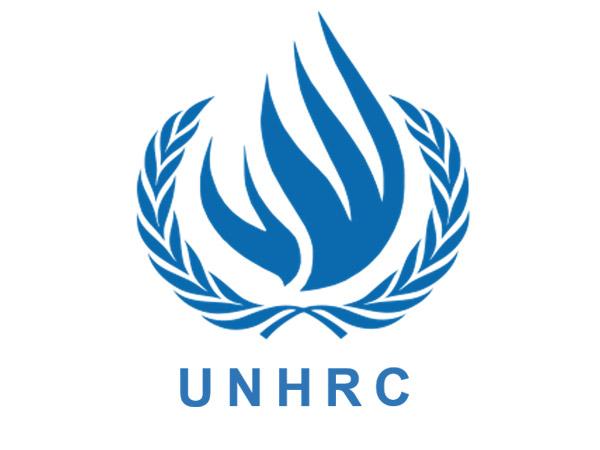
In September 2025, the United Nations Human Rights Office released a crucial report that provides a comprehensive legal analysis of Israel's conduct in Gaza. This report offers an in-depth examination of the complexities surrounding the ongoing conflict, examining not only the actions taken by Israeli forces but also the broader human rights implications for the Palestinian population. By addressing the legal standards applicable in conflict situations, the report seeks to shed light on accountability mechanisms and the protection of civilian lives amidst sustained hostilities.
The findings of the United Nations Human Rights Office's September 2025 report are significant for understanding the violence that has persisted in the region. The analysis reveals critical insights into potential violations of international law and highlights the urgent need for protective measures to uphold human rights for all individuals within Gaza. As we delve into the key points and human rights concerns raised in this landmark document, it becomes clear that the implications of these findings extend far beyond legal theory; they call for immediate and meaningful action to address the ongoing humanitarian crisis.
Overview of the United Nations Human Rights Office report from September 2025
In September 2025, the United Nations Human Rights Office published a significant report that conducted a thorough legal analysis of Israel's conduct in Gaza. This report emerged from growing concerns over human rights violations amidst ongoing conflicts in the region. The UN aimed to provide a comprehensive assessment of the situation, focusing on the implications of Israel's military actions and policies on the civilian population in Gaza. By compiling evidence from various sources, including eyewitness accounts, expert testimony, and legal frameworks, the UN sought to clarify the legal responsibilities of Israel under international human rights law.
The September 2025 report stands out for its meticulous approach to documenting potential breaches of international norms. The UN Human Rights Office employed a multidisciplinary framework, utilizing legal principles, humanitarian guidelines, and historical context to inform its analysis. This report not only evaluates Israel's actions but also seeks to highlight the broader implications for human rights within the region. By addressing the root causes of the conflict and examining the response of various actors involved, the report aims to enhance understanding and foster accountability in the pursuit of justice for victims in Gaza.
Key findings of the legal analysis of Israel's conduct in Gaza
In the United Nations Human Rights Office report from September 2025, the legal analysis of Israel’s conduct in Gaza revealed several critical findings. The report underscored instances where Israeli military operations may have violated international humanitarian law. It emphasized the disproportionate impact of airstrikes on civilian infrastructure, including homes, schools, and hospitals. The context of these actions illustrates a troubling pattern, as the report presents evidence suggesting that these strikes often lacked sufficient justification under the principles of proportionality and distinction, which are essential in armed conflict.
Furthermore, the report highlighted the legal obligations of Israel as an occupying power, stressing that it must ensure the protection and welfare of the civilian population in Gaza. The legal analysis assessed various military tactics and strategies employed by Israeli forces and concluded that certain actions could constitute war crimes. By providing detailed case studies and testimonies from affected civilians, the report presents a compelling narrative that questions the legality of Israel's military operations in densely populated areas. This comprehensive evaluation raises serious concerns about compliance with not only international humanitarian law but also with established human rights norms.
Human rights implications spotlighted in the September 2025 report
The September 2025 report from the United Nations Human Rights Office highlights significant human rights implications stemming from Israel's conduct in Gaza. The report outlines various violations that affect the daily lives of Palestinian civilians, including the use of excessive force, arbitrary detentions, and impediments to access essential services such as healthcare and education. The human rights office asserts that these actions not only infringe upon the rights of individuals but also contribute to a broader pattern of systematic oppression. The consequences of such violations manifest in deteriorating living conditions, escalating tension, and a profound sense of insecurity among Gaza's population.
Moreover, the report emphasizes the urgent need for accountability and remedial measures to address these human rights violations. The findings call upon the international community to take decisive action, urging states to uphold their obligations under international law and consider the ramifications of inaction. The United Nations Human Rights Office underscores the critical importance of supporting Palestinian rights and ensuring that those responsible for human rights abuses are held accountable. This report serves as a clarion call to both policymakers and civil society, prompting conversations about justice, reconciliation, and the necessity for durable peace in the region.
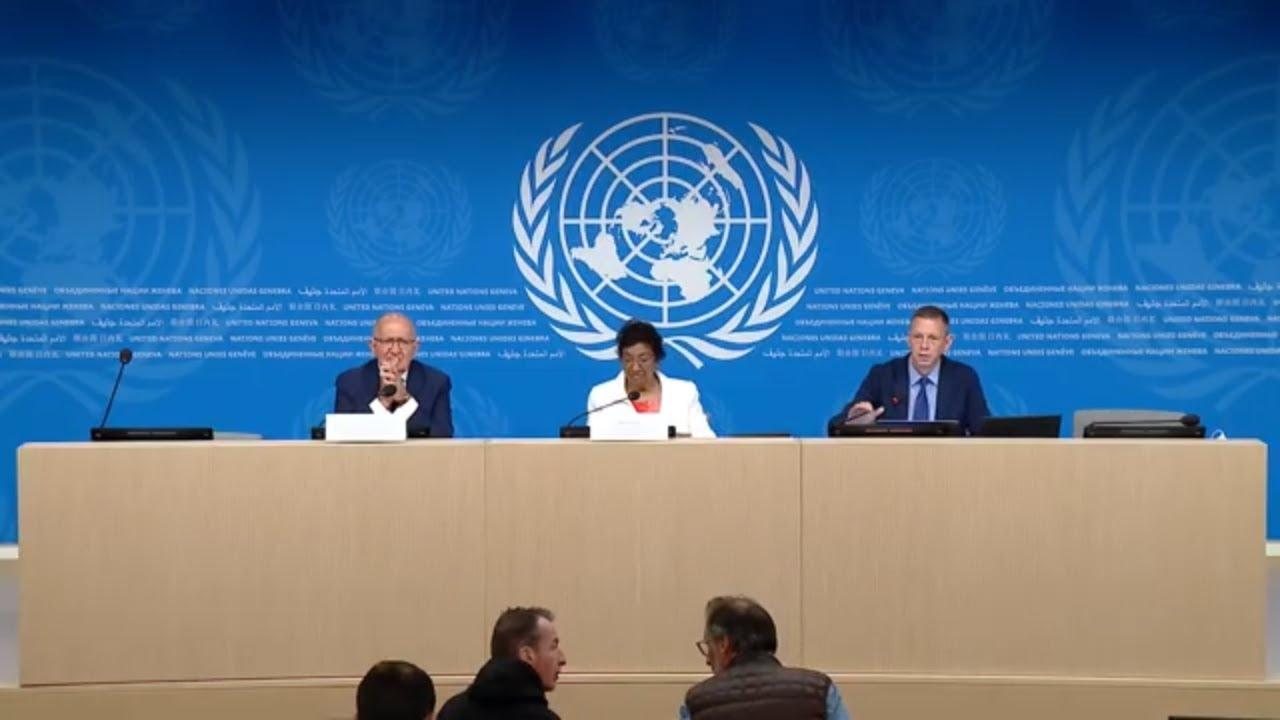
In September 2025, a marked surge in U.S. immigration enforcement flights raised significant concerns among advocates and communities alike. Human Rights First documented this alarming trend, illuminating the impact of increased deportations on vulnerable populations. This blog post provides a comprehensive overview of the escalating number of flights, underscoring the urgent need for accountability and oversight within the immigration enforcement system. By shedding light on these developments, we aim to raise awareness about the pressing human rights issues at play and advocate for meaningful reforms.
As we delve into the complexities of this situation, we will examine the implications of expedited deportations on due process for those affected. The lack of adequate legal representation and the hurried nature of these enforcement actions call into question the fairness and integrity of our immigration policies. By advocating for the protection of human rights, we emphasize the importance of ensuring justice and compassion in the enforcement of U.S. immigration laws. Join us as we navigate through the critical landscape of immigration enforcement in September 2025, highlighting the need for a more humane approach that respects the rights and dignity of all individuals.
Highlighting the surge in immigration enforcement flights in September 2025
In September 2025, the landscape of U.S. immigration enforcement took a notable turn, with a significant increase in the number of deportation flights executed by U.S. Immigration and Customs Enforcement (ICE). This surge reflects a broader trend in immigration policy focusing on heightened enforcement measures. As families continue to face uncertainty and distress, the rise in flights serves as a stark reminder of the challenges many individuals encounter within the immigration system. The data indicates that ICE ramped up its operations, generating widespread concerns about the effects of these intensified enforcement actions on communities across the country.
The escalation of immigration enforcement flights in September has stirred alarm among human rights advocates, policymakers, and affected communities. Participants in the migration process often express the feeling of being trapped within a complex system, where fear and anxiety loom large. The notable increase in flights raises questions about the motivations behind these actions and the potential repercussions for those caught in an increasingly rapid deportation cycle. As these developments unfold, it becomes imperative to discuss and critically assess the human impact of such policies, ensuring that the narratives of individuals facing deportation are brought to the forefront of this important conversation.
Examining due process implications for affected individuals
As immigration enforcement flights surge in September 2025, the implications for due process become increasingly concerning. Many individuals facing deportation may not fully understand their rights or have access to legal counsel. This lack of resources further complicates their ability to navigate the complex immigration system. The speed at which these flights are conducted often bypasses crucial legal protocols designed to protect the rights of detainees. Consequently, individuals may find themselves removed from the U.S. without having the opportunity for a fair hearing or any meaningful recourse.
Moreover, the reliance on expedited processes emphasizes the need for reform in how immigration cases are handled. Due process is not just a legal formality; it is a fundamental human right that ensures every person receives a fair chance to present their case. The increase in enforcement actions raises questions about the adequacy of judicial oversight in immigration matters. As more individuals face the threat of swift deportation, it becomes vital for advocates and policymakers to scrutinize the systems in place and ensure that every affected person is granted the due process they deserve.
Advocating for human rights and accountability in U.S. immigration policies
The increase in immigration enforcement flights in September 2025 raises urgent questions about human rights and the ethical responsibilities of U.S. authorities. Advocates emphasize the need for accountability, demanding that immigration policies adhere to the principles of justice and respect for individual rights. As stories of families torn apart by sudden deportations circulate, the call for reforms grows louder. Many organizations push for reforms that ensure transparency in the decision-making processes and advocate for legal protections that uphold the dignity of all individuals involved.
Furthermore, community voices play a crucial role in holding the government accountable. Civic groups and human rights organizations are mobilizing to shed light on the implications of these flights, urging policymakers to reconsider the ramifications of aggressive enforcement strategies. By fostering public awareness and advocating for humane treatment, these organizations significantly impact the dialogue surrounding U.S. immigration policies. Their efforts underscore the importance of viewing immigration not just as a legal issue but as a matter of human rights, urging society to foster a more compassionate and fair approach to individuals seeking safety and stability.